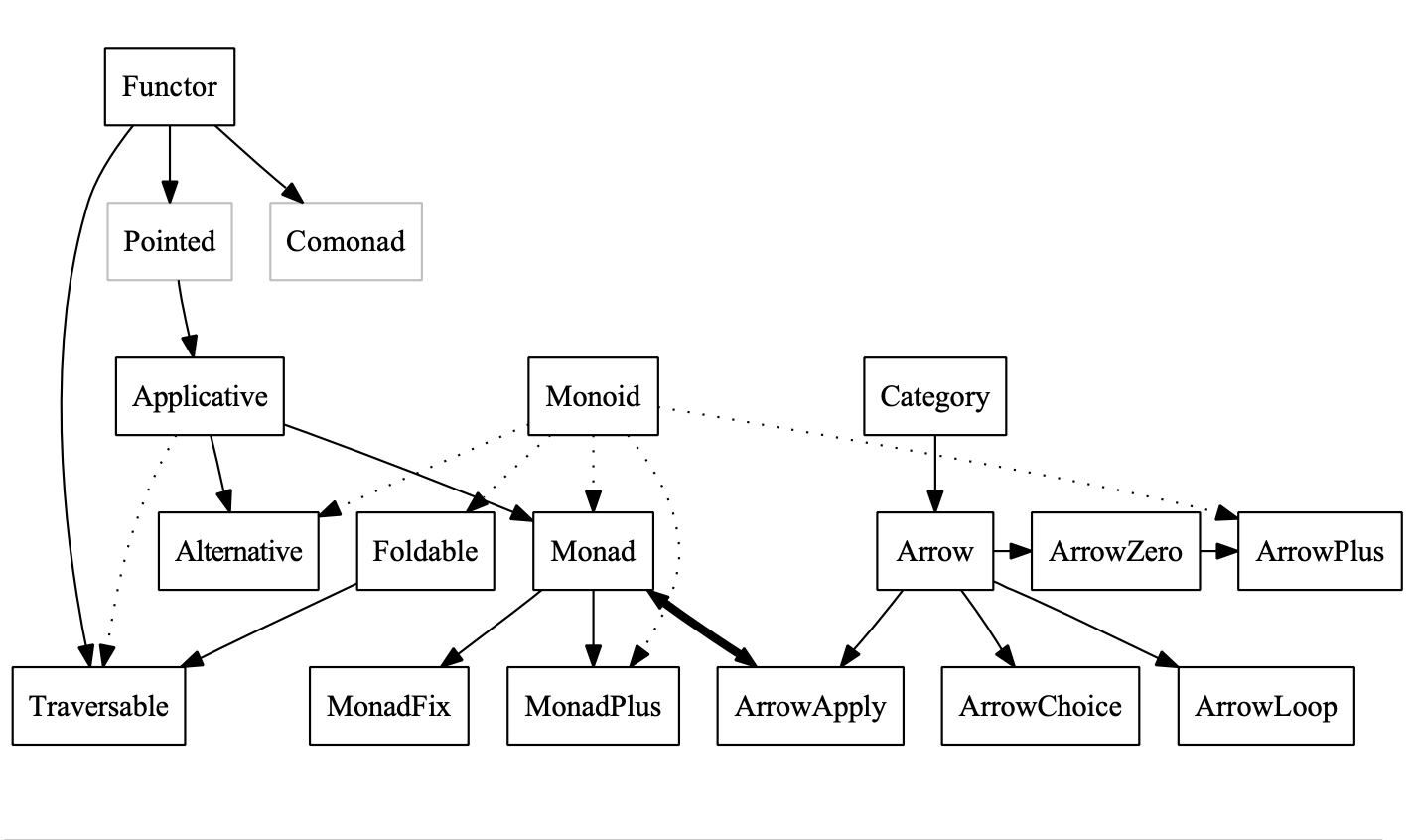data-ts v1.1.0
data-ts
Common algebraic structures heavily inspired by Haskell type classes adapted for fluent pointfree interfaces in Typescript. Strictly typed.
 Source: The Typeclassopedia by Brent Yorgey
Source: The Typeclassopedia by Brent Yorgey
Install
yarn add data-tsImport
import { Maybe } from 'data-ts';
/* or */
import * as Maybe from 'data-ts/lib/Maybe';Run Test
$ yarn jest
$ yarn jest --watchPublish
$ yarn publishInstances
- Identity
- Maybe
- Either
- Task
- List
- Map
- Set
- Trie
Work in progress
- track 1:
LazyMaybe - track 2:
✅List -- Tree -- (BinaryTree) -- (BST) -- (Red-Black Tree) \_ (Stack) \_ (Map) - track 3:
Trie -- (RouteTrie) - track 4:
Monad2 -- (Either)
TODO Ideas
- create
Functor2,Applicative2,Monad2to supportEither - implement
Alternative(.alt),Semigroup,Monoid,Foldable,Traversable - implement the lazy version of
Maybe,Eitherthat apply multiple chains/maps per item - implement naive, non-persistent (but immutable) versions of: (Linked)List, Stack, Tree, Dictionary (still useful for small inputs)
- implement persistent versions of: LinkedList, Stack, Tree, Dictionary
- see if it's possible to implement
type Maybe<T> = Nothing | Just<T>;rather thantype Maybe<T> = Nothing<T> | Just<T>;
References & Inspirations
gcanti/fp-tssanctuary-jsevilsoft/crocksfunkia/jabzorigamitower/folktaleramda-fantasyfluture-jsfantasy-landstatic-land
Note: this project does not implemented to be in compliant with Fantasyland but I draw a lot of inspiration from it. I however opt to be in consistent with Haskell interfaces but adapt it to be ergonomic in Typescript/Javascript.
Brain dump
- semigroup/monoid is useful because it allows you to implement pairwise funtions/operators and they will just work on your monoid (e.g. list). With associativity and that allows divide & conquer algorithms, parallelization, and incremental accumulation.
- function composition can be a monoid if the functions have the same type of input and output (endomorphism)
- hence, a monad is just a monoid in the category of endofunctors
A functor is a structure-preserving transformation between categories. It's some way to map objects from one category to objects of another category while also preserving the arrows between objects—think of it as a category homomorphism. ... An endofunctor is a functor from one category back to the same category. https://www.quora.com/What-is-an-endofunctor
fmap (haskell) can be viewed as fmap :: Functor f => (a -> b) -> (f a -> f b) which shows the preserved structor that maps from (a -> b) into (f a -> f b)